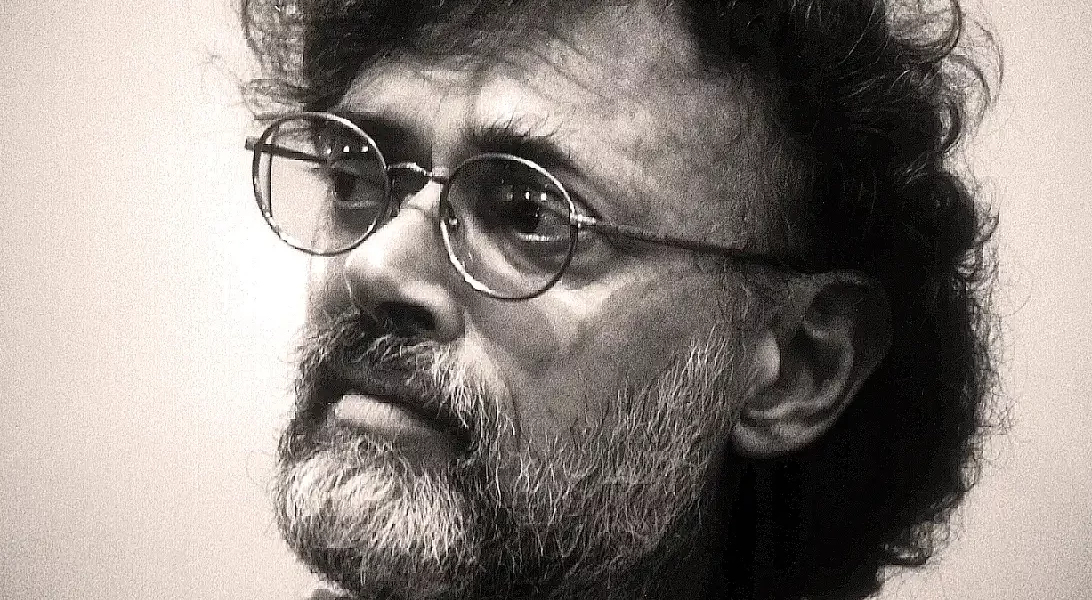
in this article
- INTRODUCTION
- CONSCIOUSNESS - THE FINAL FRONTIER
- THE MUSHROOM
- GROWING MUSHROOMS AT HOME
- DMT MACHINE ELVES
- SICK SOCIETY
- CONCLUSION
Are you 18 or older?
Please confirm that your are 18 years of age or older.
You are not allowed to access the page.

Disclaimer: The views and opinions expressed in this article are those of the authors and do not necessarily reflect the official policy or position of the Chemical Collective or any associated parties.
Few people can claim legendary status among the psychedelic subculture. Albert Hoffman, Timothy Leary and Alexander Shulgin would be among the names you might hear mentioned, and rightfully so, but one stands above all others: Terence McKenna. No one has had more of a dramatic and long lasting impact on the culture than the famous ethnobotanist and author. His books and lectures have been shared amongst psychonauts for decades, and tend to affect anyone who encounters them. Many even claim that it was Terence’s tranquil voice and descriptive language that convinced them to try psychedelics in the first place and that in itself is quite a legacy.
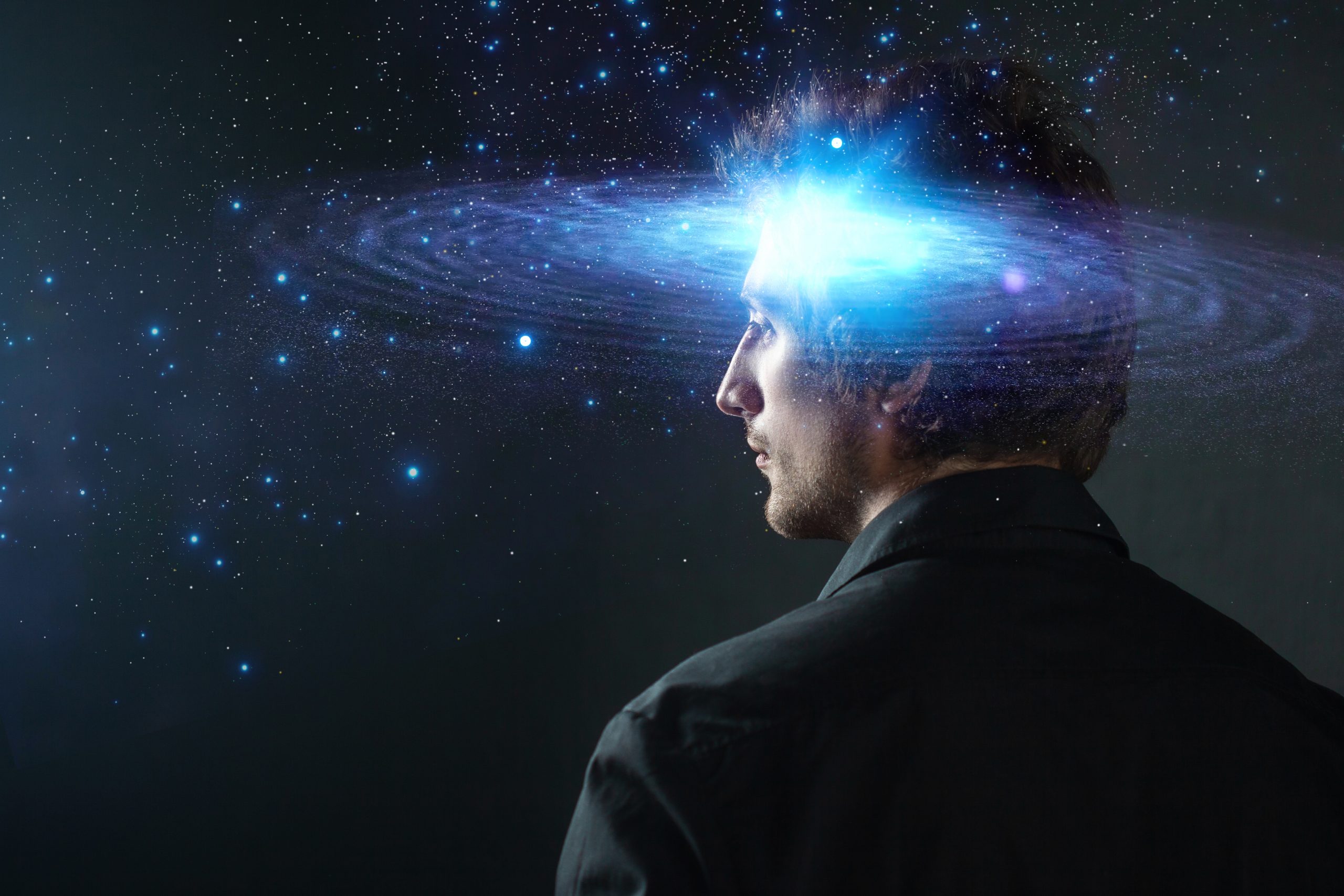
McKenna earned idolic status amongst the community for his thought provoking insights and groundbreaking theories about the psychedelic experience. Some even consider the man a shaman in his own right and revere his teachings as almost religious. He held a severe anti-establishment stance that resonated powerfully within the counterculture.
The war on drugs serves as the perfect metaphorical antithesis to everything McKenna stood for. The message he conveyed was often about challenging the egocentric state of the western world. He recognised that mankind may have lost its way and that for all our advancements in the last 10,000 years, we are bereft of a certain wisdom that ancient cultures understood:
We have been to the moon, we have charted the depths of the ocean and the heart of the atom, but we have a fear of looking inward to ourselves because we sense that is where all the contradictions flow together.
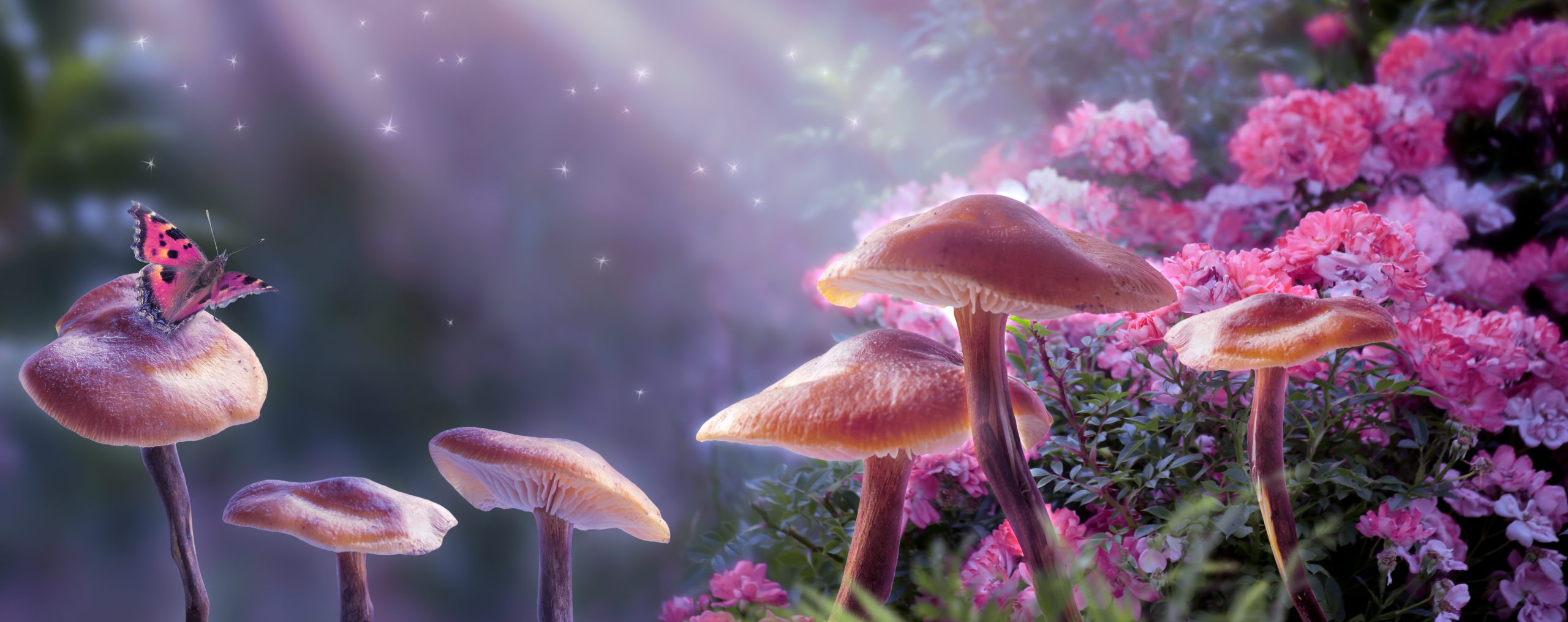
Like so many others, McKenna first became aware of the existence of psychoactive plants after reading “Seeking The Magic Mushroom”, the famous essay by R. Gordon Wasson published in LIFE magazine in 1957. Unlike most people who encountered this renowned article, he would ultimately make the journey to South America himself to seek out natural psychedelic medicines. Terence attended UC Berkeley in California in 1965, studying Tibetan folklore which is rife with spiritualism. He even travelled to Nepal to seek out shamans of the Bon tradition to learn about the use of visionary plants in their religious practices.
When his mother died of cancer in 1970, Terence, along with his brother Dennis and three friends, travelled to the Colombian Amazon in search of oo-koo-he, a DMT containing shamanic plant preparation. When they encountered fields of enormous psilocybe cubensis mushrooms, the focus of their journey shifted.
The group experimented with psilocybin and ayahuasca, combined with specialised vocal techniques, hypothesising that they would gain access to the collective memories of the human species. It was through this experimentation that Terence claimed to have been in contact with a divine entity he called “Logos” – a universal teacher he believed would be present in all visionary experiences. Over the course of many trips this voice would impart wisdom that Terence would pass on to others, sometimes referring to that voice simply as “The Mushroom”.
McKenna had already been travelling for years at this point in his life, studying shamanistic practices but he returned to Berkeley in 1972 to continue his education. Three years later he graduated with a degree in ecology, shamanism, and conservation of natural resources. The brothers brought something with them when they came home though, something that would reverberate through the psychedelic subculture for years to come – spore samples from the magic mushrooms they had consumed.
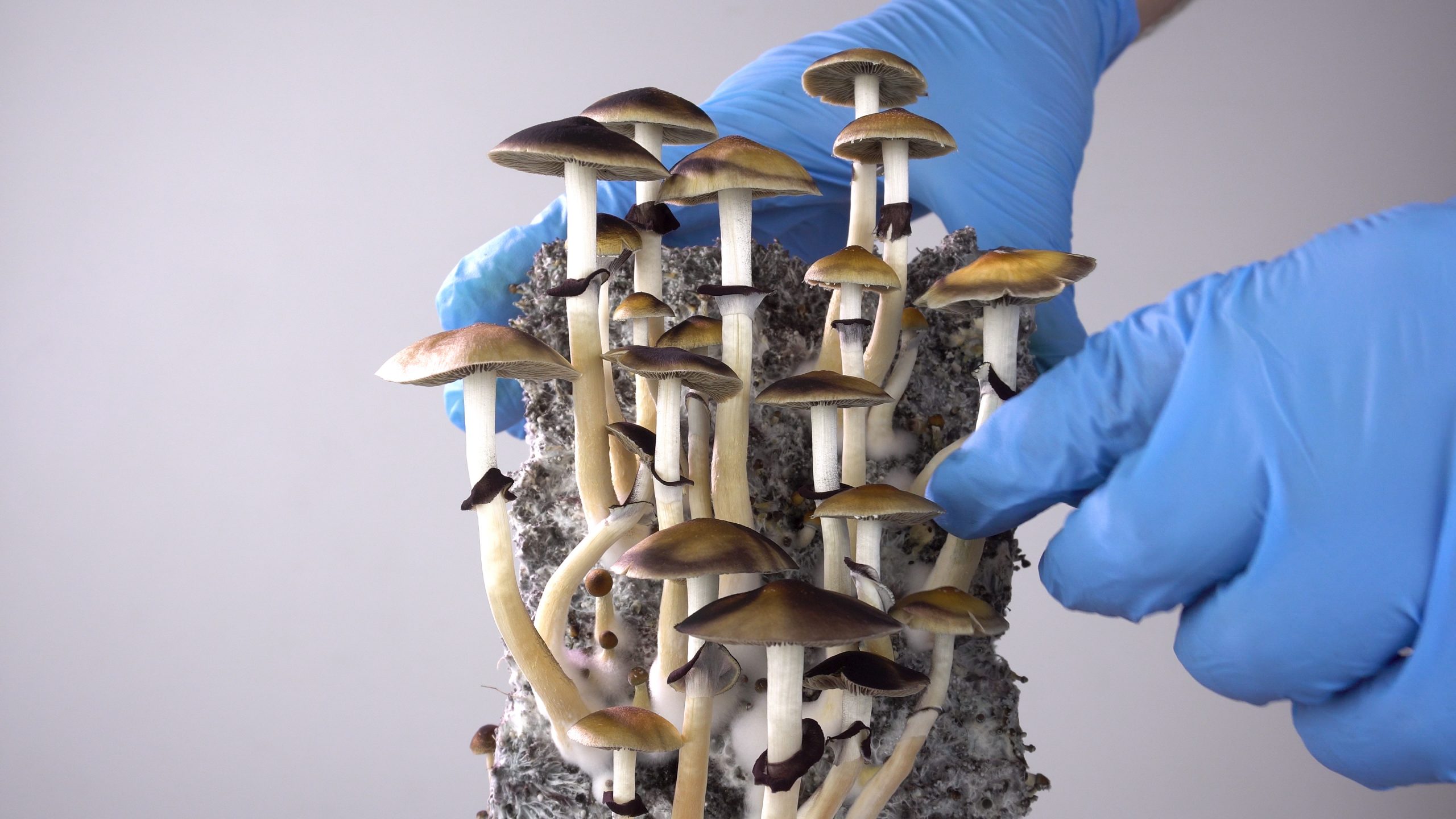
Dennis and Terence would use these spores, combined with techniques used by gourmet mushroom growers, to establish a method for growing psilocybin mushrooms at home.
This was revolutionary and now anyone could grow potent psychedelics at home.
The brothers would commit this knowledge to a book published in 1976, titled Psilocybin: Magic Mushroom Grower’s Guide. The concepts in this book were so controversial at the time that they chose to remain anonymous, using the pseudonyms “O.T. Oss” and “O.N. Oeric” instead of their real names. Their techniques would be adapted and improved-on over the years and a huge variation of spores would become available. Mushrooms however, were not the only entheogen Terence would influence for decades to come.
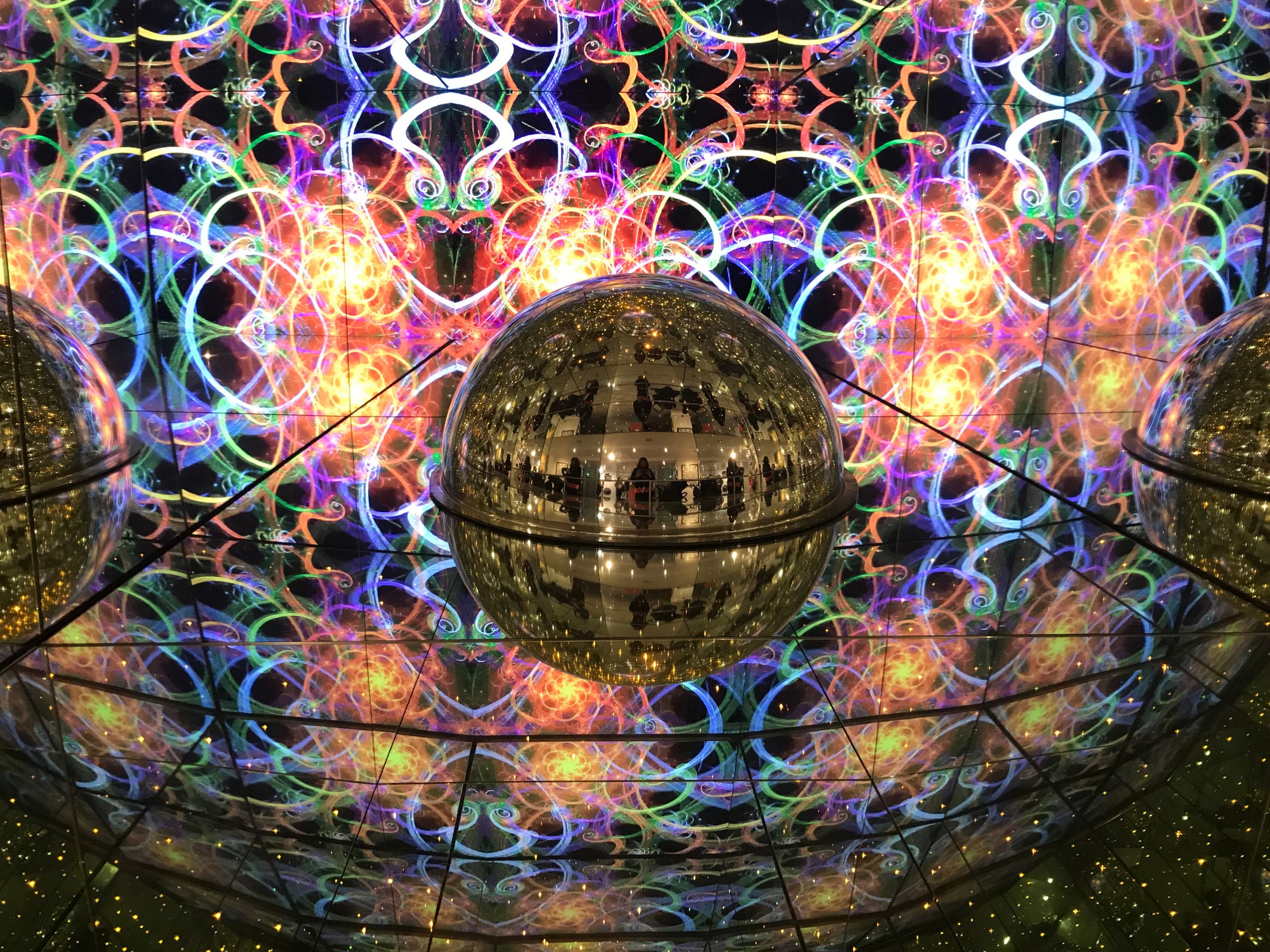
DMT has become a hot topic, in no small part because of the fascination with so-called entities. Living constructs of infinite variation, often encountered on high doses of the substance. Machine Elves are one such form and, without doubt, the most famous. Terence introduced these entities to the world:
They’re like jewelled self-dribbling basketballs and there are many of them and they come pounding toward you…you’re being presented with thousands of details per second…and these things are saying: ‘Don’t give in to astonishment’, which is exactly what you want to do.
It’s crazy to think that ancient cultures have been using DMT containing preparations for millenia, and describing encounters with all manner of strange entities. How many myths and ancient gods could be attributed to archaic psychedelic experiences? It wasn’t until Mckenna that Western society was exposed to the idea that psychedelics potentially open the doors to other living forms. When we speak of Terence’s legacy, this looms large in terms of impact on psychedelic subculture.
The details of DMT trips are usually impossible to describe but McKenna had such a talent for language that he succeeded where most others fail. His words paint vivid pictures, brimming with authenticity for those who have shifted realms but even the uninitiated can get an idea of what the experience entails. Of course Terence knew that even his flowery language can’t do DMT justice. The experience can only be fully appreciated by going through it.
There is a transcendental dimension beyond language… It’s just hard as hell to talk about!
Anyone who has had an intense DMT trip understands his statement intimately. You come back having experienced awesome and unbelievable sights, but as soon as you try to describe them you realise that words are not enough. It is so far removed from everyday reality that we just haven’t developed the linguistic tools to accurately depict hyperspace.
It is partly because of this difficulty in describing the experience that the urge to share it with others is so strong – introducing fellow psychonauts to the wonders of DMT brings an intense sense of connectedness. Not just to one another but to the wider universe and our own little slice of reality. Opening yourself up to the possibility of a reality far bigger and stranger than we could ever imagine can be an alienating realisation. Sharing the experience is the opposite. This too is a large part of Terence’s legacy. He was a big advocate for sharing: stories, growing techniques, or the substances themselves. This is an enduring theme in the psychedelic community and one that the majority of our society is sadly lacking.

Terence spoke often about the problems brewing in Western culture and since his passing, many of these issues have actually worsened. Ancient philosophers customarily looked at the world around them and created projections of where they felt humanity was headed – all too often they suggested we were hurtling towards our doom. Terence attempted to articulate what he saw as the sickness brewing in the west but he also offered what he thought were solutions to these societal ailments.
We have the technological power, the engineering skills to save our planet, to cure disease, to feed the hungry, to end war. But we lack the intellectual vision, the ability to change our minds.
Egotistical existence is at the heart of Mckenna’s diagnosis of society. The pursuit of personal gain has pushed human focus towards the acquisition of wealth and power and the reinforcement of ‘self’. Our current societal paradigm is the antithesis of the connectedness we feel when we engage with powerful entheogens. Mckenna saw psychedelics as vital to the process of humanity’s healing and was of the opinion that these substances are illegal for all the wrong reasons.
Psychedelics are illegal not because a loving government is concerned that you may jump out of a third story window. Psychedelics are illegal because…they open you up to the possibility that everything you know is wrong.
Terence proposed that the world needs to move towards an ‘Archaic Revival’ if we’re to rescue ourselves from the metaphorical enslavement of our ‘Dominator Ego’ way of life. When a computer programmer realises their code is corrupted, they restore the system to the best performing previous iteration. The more deeply rooted the corruption, the further back the developer needs to go. Archaic Revival theory suggests that humanity needs to follow a similar process.
By going back to ancient values, and the symbiotic relationship we once had with nature, we could potentially cure the ailments plaguing the modern human condition. According to Terence, humans are instinctively moving towards this way of life, in response to the ‘sickness’ permeating our lives:
We have gone sick by following a path of untrammelled rationalism, male dominance, attention to the visible surface of things…We have gone very, very sick…The 20th century is an enormous effort at self-healing.

Mckenna has made such an impact on psychedelic culture that his name and teachings will be revered by psychonauts for decades to come. Whether you’re growing mushrooms at home, smoking DMT and discussing entities with your friends or engaging in modern tribalism such as rave culture, you are interacting with Terence’s legacy, even if you don’t realise it.
Most of us can agree that humanity has taken a wrong turn somewhere but who among us knows the solution? Terence was bold enough to propose a way forward and though his ideas might seem far-fetched, it’s time to accept that drastic measures are necessary. As psychedelics make their move into the mainstream, I believe Mckenna’s teachings will be viewed as ahead of their time in the no-so-distant future. The depth of his wisdom is only just being realised as we see his ideas manifesting. Entheogens are finally being utilised for their medicinal properties just as they once were by our ancient predecessors. Perhaps this is the beginning of a true archaic revival.
Dev | Community Blogger at Chemical Collective
Dev is one of our community bloggers here at Chemical Collective. If you’re interested in joining our blogging team and getting paid to write about subjects you’re passionate about, please reach out to David via email at blog@chemical-collective.com

Welcome to Chemical Collective.
Create an account to earn 200 welcome points.
Already have an account? Sign in


Check out our Community Blog and get involved with the conversation. You will be awarded 50 x ChemCoins for each comment up to a limit of 250 total ChemCoins.


Have you purchased any of our products? Reviews and reports are so important to the community. Share your honest opinion, and we’ll reward you with 50 ChemCoins for each review!


Every time you complete an order with us, you’ll be awarded ChemCoins for each Euro spent.
Welcome to Chemical Collective.
Create an account to earn 200 welcome points.
Already have an account? Sign in

Earn commission every time someone makes a purchase through your link.
When you become an affiliate, you will be allocated a unique link to share with your friends, followers, subscribers, or Aunt Susan.
You can choose to payout the commission earned once per month, or save it up to receive on a rainy day! Commission earned is 5% of the total order value per referral.
Contact us to join the Chemical Collective family and become an affiliate.
share your toughts
Join the Conversation.
Great article. I remember the first time I had stumbled across a quote of Terence’s
‘Since all culture is a kind of con game, the most dangerous candy you can hand out is one which causes people to start questioning the rules of the game.’
After that I was obsessed. What an iconic genius he was.
The last quote in this article summarises the control of psychedelics within our society perfectly. He was spot on.
Great read.
There’s definely 0.000000001% who kow this stuff and work for malice.